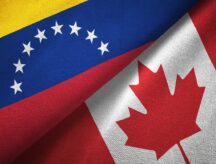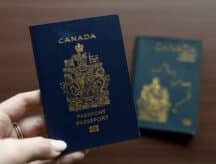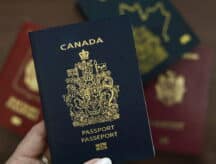Canada accepts spousal or common-law sponsorship applications from out-of-status foreign nationals
Among the recent challenges arising from the coronavirus pandemic is that many people are not able to travel to where they had planned and are consequently stuck where they are.
A notable example of this phenomenon is the predicament of foreign nationals who have to come to Canada to visit their spouse or common-law partner who is a Canadian citizen or permanent resident. They arrived on temporary status, with the aim of making their stays permanent. However, due to various factors, they have fallen out of status. Perhaps their documents expired or they are otherwise without the documentation that they need to stay in Canada.
Normally, being in this situation would mean that the foreign national would now be in Canada illegally. They would be potentially subject to a removal order, which would require them to leave Canada. Some removal orders may be so stringent as to prohibit the subject from ever returning to Canada.
See if you are eligible for spousal sponsorship
Fortunately, Immigration, Refugees, and Citizenship Canada (IRCC) maintains a policy that balances order with the compelling interests of out-of-status foreign spouses or partners of Canadians. The former group are people who, often through no fault of their own, become stranded in Canada. These are individuals who have ties of marriage with a Canadian in Canada, who obviously have strong links with Canada and a good likelihood of becoming Canadian in the future.
Consequently, IRCC has established a policy of providing a pathway for these individuals. Essentially, the policy states that, for such persons, IRCC will not consider the lack of status to require the person to leave Canada, and then re-apply to enter and to be sponsored as a spouse. Rather, as long as the Canadian half of the couple makes an undertaking of support, they can still sponsor the foreign half according to the rules that otherwise govern In-land Spousal and Common-Law Partner sponsorship.
It is important to note that this exemption only applies to people who would otherwise suffer due to lack of status alone. It does not apply to people whose immigration to Canada might be problematic due to factors such as serious criminality or national security risk. Partners also have to be eligible for sponsorship.
The inland spousal/partner sponsorship policy is an important tool that allows IRCC to spare couples whom, without it, would likely suffer considerable uncertainty, heartache, and cost.
See if you are eligible for spousal sponsorship
© CIC News All Rights Reserved. Visit CanadaVisa.com to discover your Canadian immigration options.
- Do you need Canadian immigration assistance? Contact the Contact Cohen Immigration Law firm by completing our form
- Send us your feedback or your non-legal assistance questions by emailing us at media@canadavisa.com







